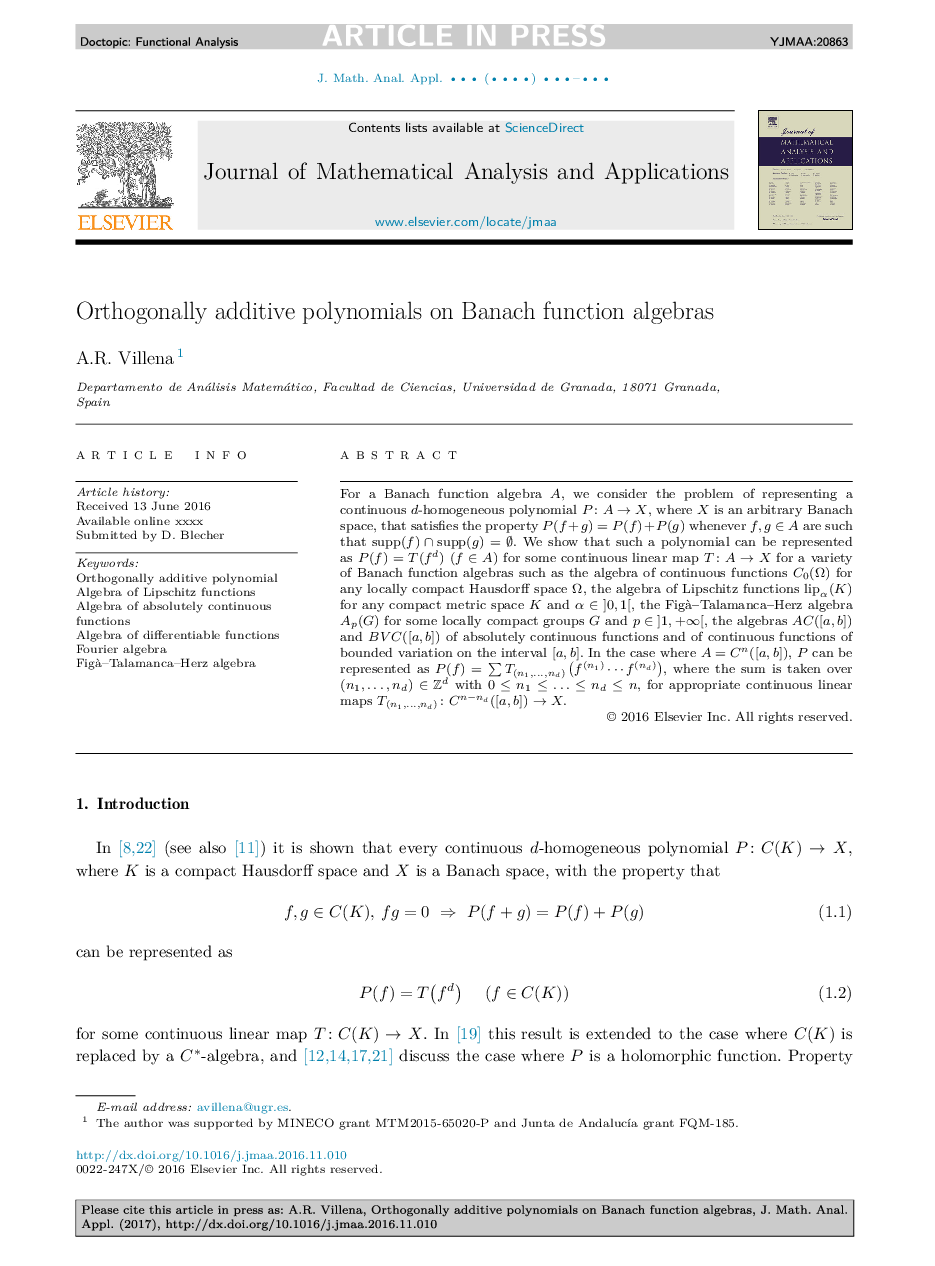| Article ID | Journal | Published Year | Pages | File Type |
|---|---|---|---|---|
| 5775329 | Journal of Mathematical Analysis and Applications | 2017 | 26 Pages |
Abstract
For a Banach function algebra A, we consider the problem of representing a continuous d-homogeneous polynomial P:AâX, where X is an arbitrary Banach space, that satisfies the property P(f+g)=P(f)+P(g) whenever f,gâA are such that supp(f)â©supp(g)=â
. We show that such a polynomial can be represented as P(f)=T(fd) (fâA) for some continuous linear map T:AâX for a variety of Banach function algebras such as the algebra of continuous functions C0(Ω) for any locally compact Hausdorff space Ω, the algebra of Lipschitz functions lipα(K) for any compact metric space K and αâ]0,1[, the Figà -Talamanca-Herz algebra Ap(G) for some locally compact groups G and pâ]1,+â[, the algebras AC([a,b]) and BVC([a,b]) of absolutely continuous functions and of continuous functions of bounded variation on the interval [a,b]. In the case where A=Cn([a,b]), P can be represented as P(f)=âT(n1,â¦,nd)(f(n1)â¯f(nd)), where the sum is taken over (n1,â¦,nd)âZd with 0â¤n1â¤â¦â¤ndâ¤n, for appropriate continuous linear maps T(n1,â¦,nd):Cnând([a,b])âX.
Keywords
Related Topics
Physical Sciences and Engineering
Mathematics
Analysis
Authors
A.R. Villena,
